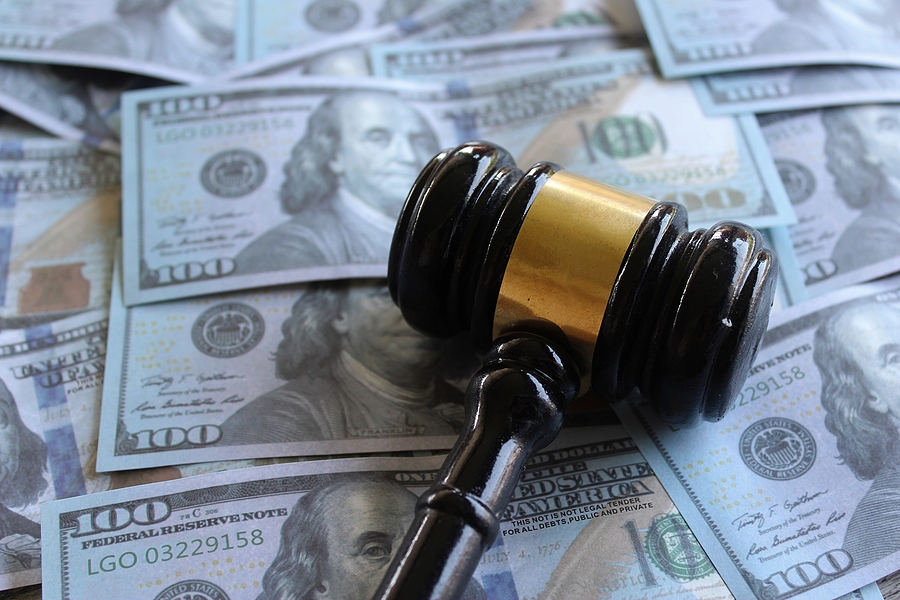You might have suffered a severe injury, or the tragic loss of a family member, due to the extreme recklessness of someone else. For example, a person may have been so drunk behind the wheel that they blacked out and caused a wreck. Or a young child may have drowned in a neighbor’s swimming pool. The neighbor knew this type of tragedy could happen, yet refused to erect a fence to keep it from happening.
These are examples of negligence that are so egregious they could result in punitive damages. These damages exceed the compensation typically available through a personal injury or wrongful death lawsuit. The attorneys with The Eberst Law Firm have extensive experience pursuing punitive damages, and we may be able to do the same for you.
Please schedule a free consultation by contacting us online or calling 1-888-CALL-JON.

What are Punitive Damages?
Punitive damages are often called “exemplary damages.” They’re monetary compensation awarded to a plaintiff in a civil lawsuit. Unlike compensatory damages, which aim to reimburse the plaintiff for their actual losses and expenses, punitive damages are intended to, as the name implies, punish the wrongdoer. They’re also designed to keep others from doing the same thing.
You’ve probably heard of the 1992 case of a McDonald’s customer who suffered a severely burned lap after spilling a cup of coffee she received in the drive-thru.
Jurors decided to award her nearly $3 million in punitive damages after learning more than 700 customers had made similar claims against the restaurant chain in the previous 10 years. They believed McDonald’s knew their coffee was too hot and knew the potential dangers, yet continued serving it at extremely high temperatures.
While punitive damages can be very high, it’s essential to note that juries rarely award them. In fact, plaintiffs only receive punitive damages in about 5% of cases.
What is the Purpose of Punitive Damages?
The primary purpose of punitive damages is to punish the defendant for their intentional or grossly negligent actions and to discourage them and others from repeating such misconduct. By imposing significant financial penalties, punitive damages serve as a deterrent, sending a message that certain behaviors will not be tolerated in society.
The state of Florida, however, places a cap on the dollar amount of punitive damages a jury can award. In most cases, punitive damages are limited to three times the amount of compensatory damages or $500,000, whichever is greater. Compensatory damages include medical expenses, lost wages, loss of quality of life, pain and suffering, and others.
There are exceptions to Florida’s rule, however. For example, if the defendant was motivated by financial gain and exposed the plaintiff to unreasonable danger, their punitive damages could be four times the compensatory damages or $2 million. If the defendant intended to harm the plaintiff, there’s no cap on the punitive damages a jury can award.
Factors that Influence Punitive Damages
Determining punitive damages varies depending on each case’s jurisdiction and specific circumstances. However, several factors typically influence whether or not a jury will award punitive damages. Here are just a few.
Severity of Misconduct
Courts consider the degree of the defendant’s misconduct and the extent of harm caused to the plaintiff or others. The more egregious the behavior, the higher the likelihood of awarding punitive damages.
Intent
If the defendant’s actions were intentional rather than accidental, it could increase the likelihood of punitive damages. For instance, acts of fraud, intentional harm, or malicious conduct are more likely to attract punitive damages.
Repetitive Conduct
If the defendant has a history of engaging in similar wrongful conduct (such as the McDonald’s example above), it can strengthen the case for punitive damages. Courts aim to prevent habitual offenders from continuing their harmful actions.
Degree of Culpability
Another crucial factor is the level of the defendant’s guilt and responsibility for the harm caused. If their actions were particularly reckless or deliberate, punitive damages may be more likely to be awarded.
Examples of Cases Where Punitive Damages May be Awarded
Punitive damages are often sought in cases involving severe misconduct or intentional harm. Some examples of situations where punitive damages may be awarded include:
- Product liability: If a company knowingly sells a dangerous or defective product without warning consumers of the risks, it may have to pay punitive damages.
- Medical malpractice: In cases of gross negligence or intentional harm by medical professionals, the victim may seek punitive damages to deter such behavior within the medical community.
- Intentional torts: Cases involving intentional harm, such as assault, battery, or fraud, often result in the pursuit of punitive damages to punish the wrongdoer.
- Employment discrimination: In some cases of severe workplace discrimination or harassment, a jury may award punitive damages to send a message about the unacceptability of such behavior.
Contact The Eberst Law Firm if You’ve Been Injured in a Personal Injury Accident
The experienced personal injury attorneys with The Eberst Law Firm will work tirelessly to ensure you receive the justice and compensation you deserve. Schedule a free case review by calling 1-888-CALL-JON or using our online contact form.
